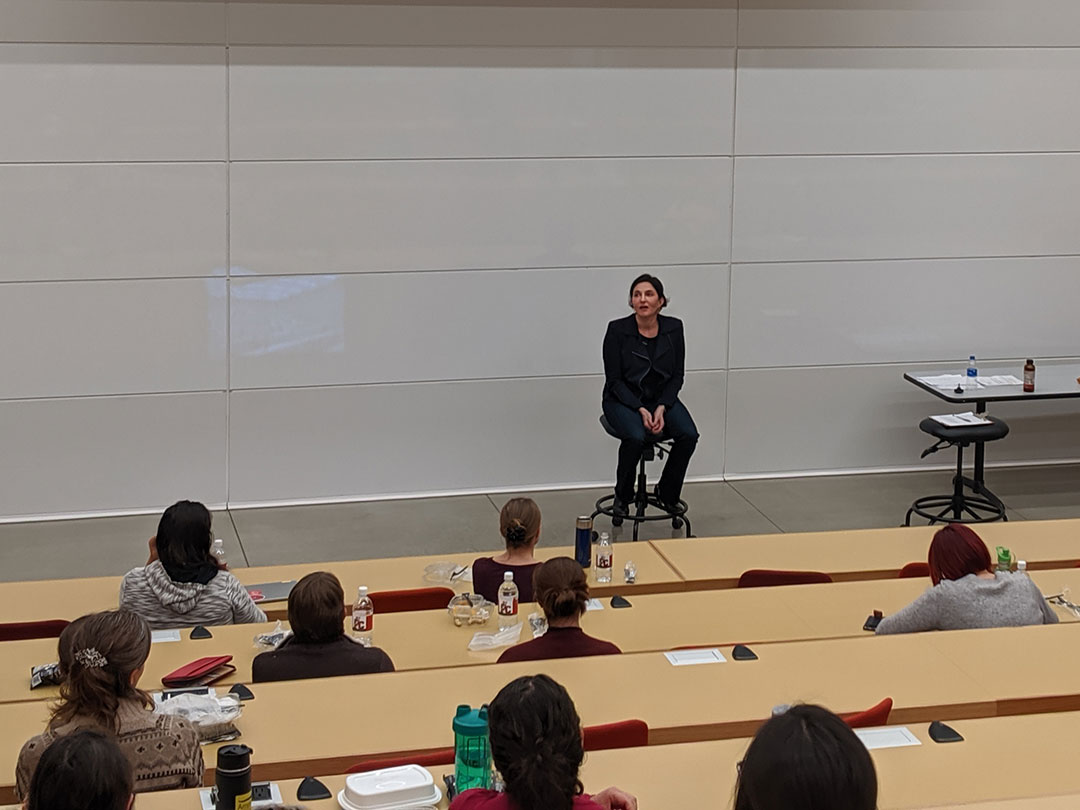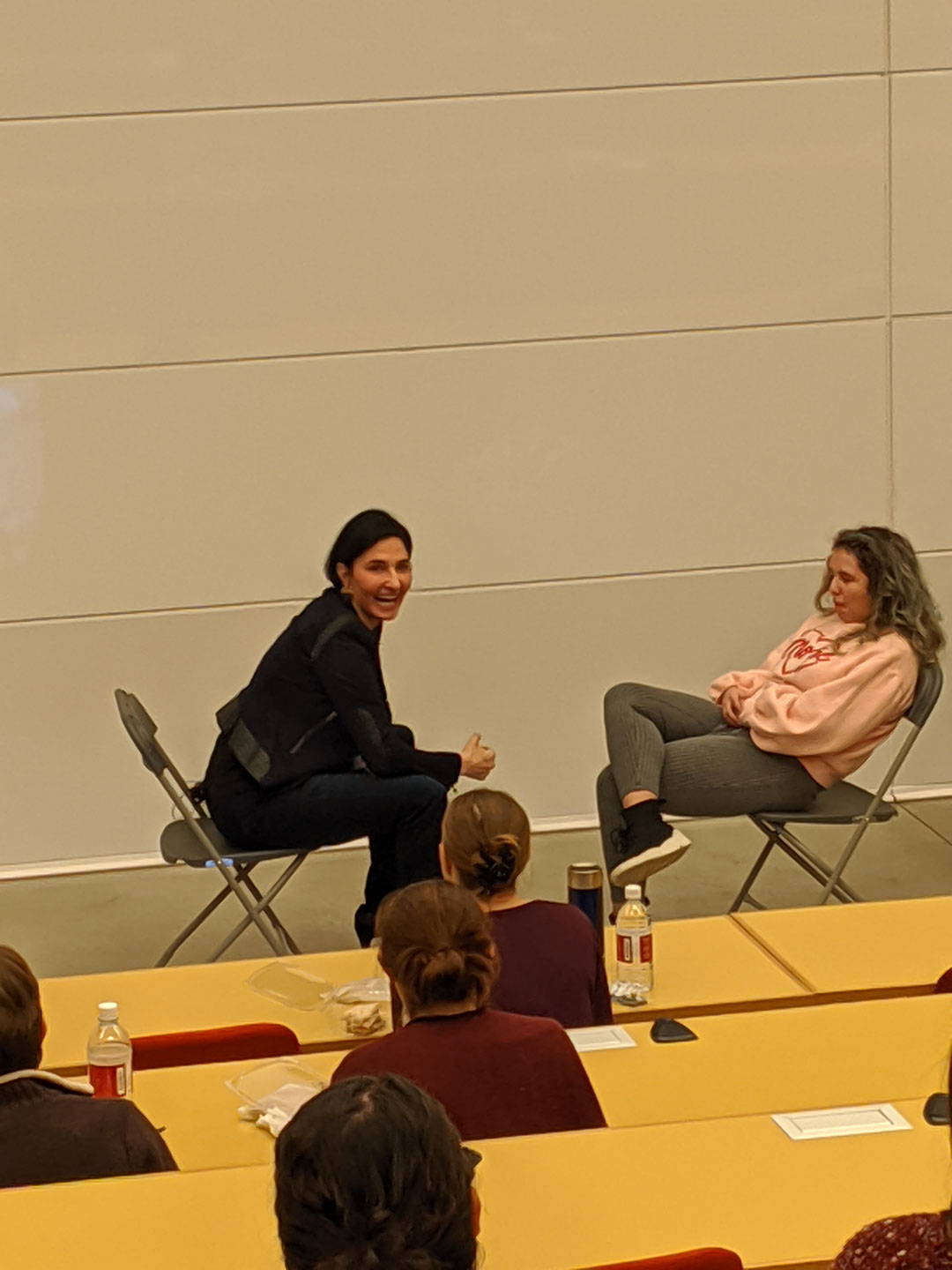Eliza VanCort offers communication tips to the college

This month, members of the College of Veterinary Medicine community enjoyed a dynamic and interactive lecture with Eliza VanCort, a motivational speaker who focuses on workplace communication.
VanCort began her talk with her story getting into a serious bicycle accident that left her with serious brain damage and rendering her communications skills to that of a seven-year-old. Slowly, she learned to rebuild her ability to speak normally, and through that journey, she carefully studied what exactly excellent communicators do.
“Communication is like a code,” VanCort told the audience. “It’s like the Matrix. When you’re in it and don’t know what you’re doing, you’re vulnerable … but when you see the code, you’re like Neo. You can stop bullets.”
VanCort shared her favorite communication tools, which included “lifting” an idea to get listeners to focus on the points you want them to hear; how to move one’s body while talking so that listeners get the right message; and some specific tips for those working in STEM and academia.
VanCort demonstrated her favorite lifting vocal techniques — well-timed silence, and modulations in volume, tone and cadence — which can all be harnessed to make listeners pay close attention to a certain point.

Next, VanCort showed how the speaker can use their body language to control the dynamic. These movements included looking at the person or looking away, smiling or not smiling, and taking up a lot, or a little space with one’s body. She showed how these movements can be harnessed to “play high” — maintaining the higher status in the dynamic or “play low” — maintaining the lower status. “Not moving your head while you speak is one of the biggest power moves you can do to another human being,” she said after demonstrating the technique. She noted that playing low is not inherently bad, and is in fact the basis of building rapport with other people.
The talk provided some key tips for folks working in academia and the sciences; VanCort explained the importance of providing personal details or narratives to make scientific information compelling to a wider audience.
Finally, VanCort opened up the session to Q&A time, where she provided tips on how to handle communication issues including being interrupted and dealing with microaggressions.


